Iran Appoints Ambassador To UAE After 7-Year Hiatus
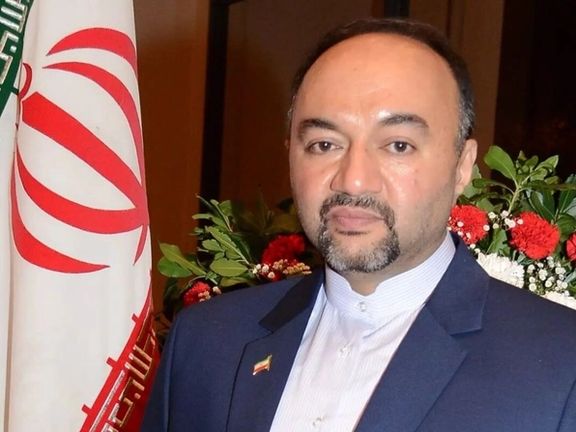
Iran has appointed an ambassador to the United Arab Emirates for the first time in seven years, Iranian state media reported on Tuesday.

Iran has appointed an ambassador to the United Arab Emirates for the first time in seven years, Iranian state media reported on Tuesday.
Reza Amerihad, the newly appointed ambassador, formerly served as the director general of Iranian expatriates' office in the foreign ministry. His diplomatic posts also include the Islamic Republic’s envoy to Algeria, Sudan and Eritrea.
The announcement came in less thana month after a high-level Iranian delegation -- led by Ali Shamkhani from Iran's Supreme National Security Council (SNSC) -- visited Abu Dhabi, hoping to mend ties with its Persian Gulf neighbor.
In an unexpected move last year, the UAE resumed diplomatic relations and returned its ambassador to Tehran after ties soured following the storming of the Saudi embassy in Tehran in January 2016. Saudi Arabia severed relations with the Islamic Republic after pro-government mobs attacked and ransacked its embassy in Tehran and consulate in Mashhad following the execution of a Saudi Shiite cleric.
Earlier in March, Iran and Saudi Arabia agreed to re-establish diplomatic ties after Chinese-mediated talks in Beijing. Over five days of negotiations, it was agreed that the two countries will reinstate ambassadors after seven years of tensions. Iranian and Saudi foreign ministers are scheduled to meet in Beijing on Thursday.
Crippling sanctions and a revolution which has plunged Iran into its worst recession in decades, has forced the hardline Iranian leaders to mend ties with neighboring countries in the hope for the revival of the 2015 nuclear deal known as the JCPOA.
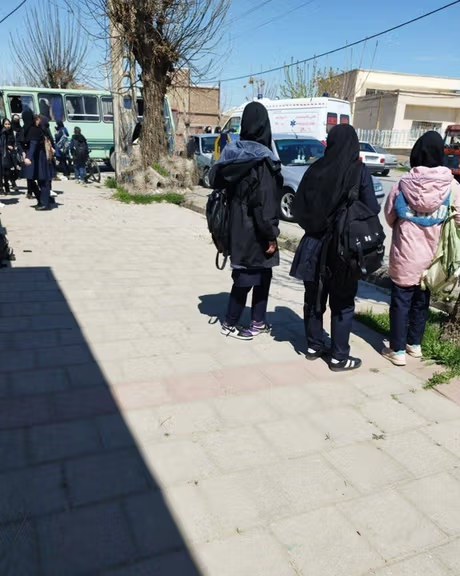
With the end of New Year holidays and the re-opening of educational centers in Iran, chemical attacks on schools have resumed.
On Monday and Tuesday, it was reported that at least five schools were targeted across the country with schoolgirls being poisoned apparently by chemicals spread throughout buildings.
Media and human rights organizations reported attacks on schools in the cities of Urmia and Naqadeh in West Azarbaijan Province, Tabriz and Esfahan.
ISNA state news agency quoted Head of Emergency Department of East Azarbaijan Province Asghar Jafari Rouhi as saying on Tuesday that 20 female students from Tabriz were taken to hospital with respiratory symptoms and shortness of breath.
According to information received by Iran International, there was a chemical attack on an elementary school in Urmia, but no more information is available on the number of poisoned children.
Kurdish rights group Hengaw reported that In Naqadeh, at least four schools were targeted by chemical attacks and tens of students were poisoned.
On the other hand, Rokna news agency, which covers the news of such incidents, reported another chemical attack on a girls' school in the central city of Esfahan.
The report of the poisoning of dozens of schoolgirls immediately after school re-openings, comes as at least 130 elementary and high schools were targeted in the past Iranian year.
The attacks that started in November have continued without any apparent effort by the government to seriously pursue the perpetrators or explain to terrified parents and students what was happening in so many schools.
Many ordinary Iranians have been suspicious of involvement of the regime itself, or religious extremists protected by the regime, calling the attacks “state terrorism”.

Iran’s ruler Ali Khamenei has voiced his support against women who unveil in public, as gas attacks against schoolgirls resumed following Nowruz holidays.
Throwing his weight behind the hardliners who have been pushing for new measures to enforce the mandatory Islamic dress code, Khamenei said that “hijab is a restriction based on Sharia (Islamic law) and the constitution.”
The Supreme Leader also claimed that “removing hijab is religiously and politically haram,” using the Arabic term which means ‘forbidden.’ His view about hijab is based on the Islamic Republic’s interpretation of Sharia, as the observance of hijab is a source of disagreement among Muslim scholars.
On Monday and Tuesday, at least five girls’ schools were targeted across the country with some sort of chemical attack, that in some cases sends students to hospital.
The uprising that was sparked by the death in police custody of 22-year-old Mahsa Amini has made it increasingly difficult to enforce the mandatory Islamic dress code. Appearing in public without a full veil has become a common sight even in some small and more conservative towns.
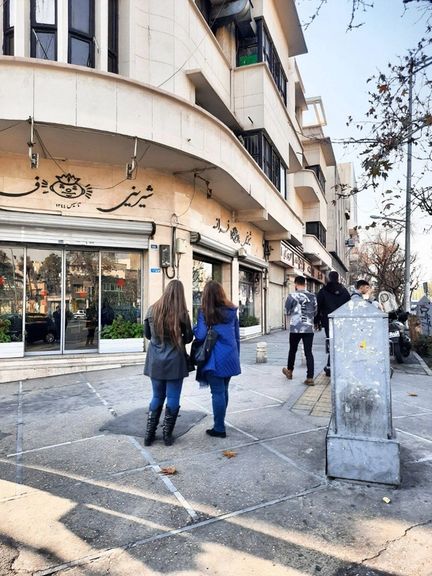
Khamenei repeated his conspiratorial ideas about “the intelligence agencies of the enemies” orchestrating the movement against hijab in Iran.
“Enemies” in the jargon used by the Islamic Republic refers to Israel and the United States, but the fluid concept can also include other countries whenever a state makes a statement about Iran’s human rights violations, destabilizing acts in the region, or any type of criticism against Tehran.
“If those who unveil in public knew who are behind this scheme, they would not remove their hijab,” Khamenei said, admitting that there are many people from religious families who no longer observe hijab rules.
Since the beginning of the ‘Women, Life, Liberty’ movement in September last year, many girls and women have set fire to their headscarves in a symbolic move and voiced opposition to compulsory hijab. Social media is replete with photos and videos of such acts of disobedience, especially during Nowruz holidays, when women boldly ignored the regime’s rules and appeared without veil on the streets, shopping centers, natural landmarks, and recreational sites.
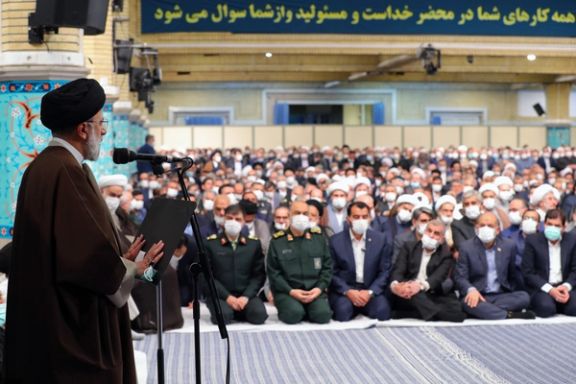
Frustrated over its inability to deter these women, the three branches of the government have joined forces to find new ways to enforce hijab. They have also announced several measures to confront those who unveil, as well as repeatedly threatening to persecute citizens who support such acts of disobedience,expulsion of students, and deprivation from social services. It was announced in March that women could be fined as much as $60,000 for flouting hijab when a new law to enforce the Islamic dress code is passed by parliament.
Such threats have incited numerous clashes as the government and many clerics urged organizations as well as ordinary citizens to confront women who unveil in public, emboldening hardliners to attack because they know the authorities will back them if an incident ends up in courts.
Hundreds of schools were targeted by poisonous gas attacks from November to March, affecting more than 1,500 students and hospitalizing dozens.
With women and girls having been at the forefront of the protests, it is believed that the attacks are a coordinated effort by pro-regime elements to intimidate and deter them. Activists have asked the international community for help to force the government to stop these incidents.
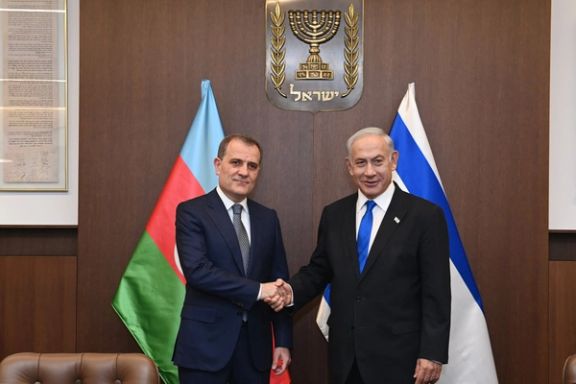
Azerbaijani media report that the government of Baku summoned the Iranian ambassador Abbas Mousavi, after the Islamic Republic sent a diplomatic note to the Caucasian country.
Aykhan Hajizada, Spokesperson of the Ministry of Foreign Affairs of the Republic of Azerbaijan said that his government received Iran's note Monday morning.
Hajizada added Mousavi Iran's note criticizing Azerbaijani media for its reporting about Iran’s policies was "insulting, false, slanderous and biased" contents.
He further noted that the Iranian ambassador was told "The Islamic Republic's unilateral actions" have always been the cause of misunderstandings in the relations between the two countries.
The Iranian ambassador or government are yet to react to the statements of Baku Foreign Ministry officials.
Relations between Azerbaijan and Iran, which has a large population of ethnic Azeris in its northwest, have been strained in recent months after Baku announced plans to open formal diplomatic ties with Israel. In January, Azerbaijan closed its embassy in Tehran after what it called a "terrorist attack" that killed the embassy's head of security.
Israeli Foreign Minister Eli Cohen said Wednesday in the presence of Bayramov that Iran threatens our region and creates instability in the Middle East by supporting and financing terrorism. He also urged Baku to act jointly against Iran’s nuclear program.
Iran's Ministry of Foreign Affairs asked the Azerbaijani government twice to explain Baku's position regarding the Israeli Foreign Minister's remarks.
Meanwhile, Azerbaijan Republic has arrested four people in connection with the attempted assassination of a lawmaker who was shot and wounded last week by what is attributed to Iran-linked agents.
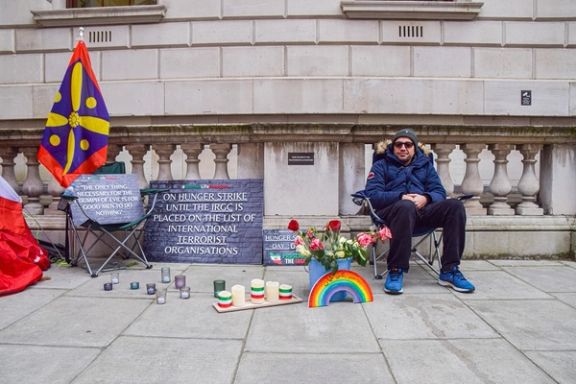
Iranian activist Vahid Beheshti, on a hunger strike in London since February 23, has once more called on Prime Minister Rishi Sunak to designate the IRGC as a terrorist organization.
Beheshti has been battling the bitter winter outside the UK Foreign Office to raise awareness for the need to designate the IRGC responsible for the deaths of hundreds of Iranian citizens since September.
In his third and letter on Monday, he reiterated his desire to meet PM Sunak, adding that “Today marks my 40th day of hunger strike and as I have told the media in recent days, my body grows ever weaker, yet internally, I grow ever stronger in my conviction that this is the right thing to do.”
Beheshti called his request to the British government "simple and at the same time, very important" emphasizing the urgency of proscribing the IRGC.
He said the designation urgently needs to happen, not only for the people of Iran who yearn for democracy, but also for the people of Britain and "the values we uphold".
“As long as we continue with our appeasement policy, the IRGC will continue with their hostage taking policies,” he said. “They only understand one language, pressure and strong leadership.”
Beheshti has not eaten in 41 days and lost over 13kg or about 17% of his body mass. In the past days, a group of other Iranians also joined him and set up tents next to him.
The Telegraph reported in February that “Joe Biden’s diplomats are pressing the UK Government not to formally declare Iran’s Revolutionary Guard a terrorist group, despite the Home Office backing the move…” It added that the US is saying Britain should keep doors open in case of a need to be an interlocutor.
Many politicians in Europe have been urging the designation of the IRGC as a terror organization in the wake of bloody violence against protesters in Iran and other malign activities.
European Union officials, however, have delayed the move arguing that such a decision must be backed by a legal determination of a European court.
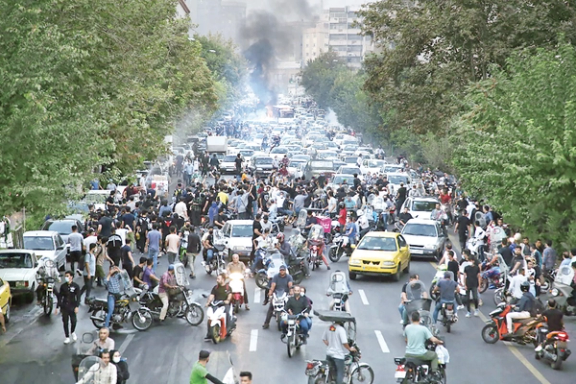
The UN Human Rights Council Tuesday adopted a resolution sharply criticizing the situation in Iran in the wake of a deadly crackdown on antigovernment protests.
The HRC voted to accept the Report on the human rights situation Iran from its Special Rapporteur Javaid Rehman and extended Rehman’s reporting mandate by another twelve months.
Rehman was pleased with the result of Tuesday’s vote in the Council. Talking to Iran International after the vote, Rehman said he welcomed the strong vote accepting his Report’s findings and recommendations and extending his mandate.
Rehman said that the vote, stronger this year than in some previous years, showed that the Council recognized that what he called the “alarming and concerning” human rights situation in Iran had become much worse since the death of Mahsa Gina Amini than in the previous reporting period.
The Islamic Republic has been criticized by the UN rights body and international organizations defending human rights for decades. In the latest round of protests, security forces killed more than 500 civilians and arrested at least 20,000 based on estimates presented in detail by monitoring groups.
The Resolution’s summarized Rehman’s original report and its recommendations. These deplored the “widespread, repeated and persistent” violation of human rights in the Islamic Republic and called on Iran to end its “systematic impunity” and hold human rights violators accountable in line with international law.

The Resolution also called for Iran to stop discrimination and violence based on gender and ethnicity and belief. The Resolution expressed its “deep concerns” at the surge of executions and called on Iran to honor its own agreed legal obligations under international law and to halt all executions for offences “that do not meet the threshold of the most serious crimes or for alleged offences committed before the age of 18 years.”
Twenty-three countries, mostly in Europe, voted in favor of the Resolution; eight against, among which were China, Pakistan and Cuba. China justified its No vote on the grounds that it was always opposed to any interference in the internal affairs of states. Pakistan said the Resolution was politically driven and human rights investigations were “best done with the consent of their country concerned”.
This last point would make the Special Rapporteurs job redundant, since Iran has refused both to recognize or acknowledge the mandate given by the UN to the HRC’s Special Rapporteur. Eritrea, Kazakhstan , Vietnam, Bolivia and Bangladesh made up the refuseniks.
India and Qatar were among the 16 abstaining voters, which could both sit on their hands and yet let the Resolution pass. The abstainers included a bloc of sub-Saharan African states. Of these, South Africa said it recognized the part played by women in its own struggles for freedom and encouraged Iran to enhance its cooperation with the UN High Commission for Human Rights. But despite its concerns with what it called the ‘geo-politics’ of the Resolution, South Africa nevertheless did nothing to block the Resolution. Nor did India, which last time voted against the Special Rapporteur’s mandate being extended.
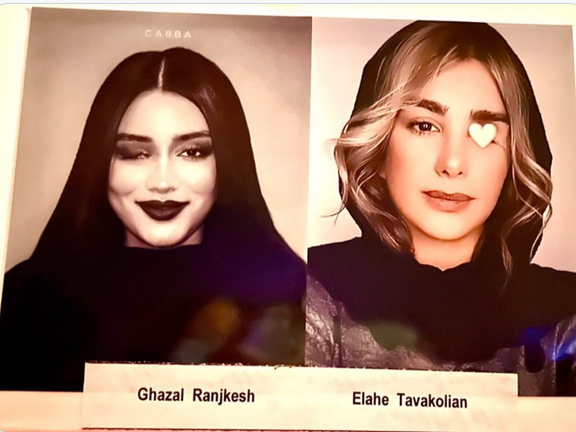
The Resolution, as with previous such resolutions, again “regretted” the refusal of Iran to allow Rehman into the country and called on Iran to cooperate with the Special Rapporteur and provide all information necessary “to allow the fulfilment of his mandate” … This last is what the UN calls its “standing invitation” to Iran to cooperate.
Iran’s UN ambassador Ali Bahreini was having none of it. Speaking in English shortly before today’s vote, Bahreini called the Resolution a “malign attempt” to “name and shame” the Islamic Republic. Bahreini said that the “weaponization of human rights as a foreign policy tool” was unacceptable and “endangers the common cause on human rights”.
The purpose of the Resolution, Bahreini claimed, was to “divert attentions from the violations of the rights of Iranians and crimes against humanity committed by the sponsors of this resolution through imposing nationwide unilateral coercive measures against Iran.”
This referred to sanctions imposed on Iran, a point raised in Rehman’s report which recognized the effects of sanctions on Iran’s health sector and called for exemptions in some areas. But, as Rehman argued in the Council, sanctions “should not be used to excuse violations of human rights”.
Iran has claimed that US economic sanction impede healthcare for its citizens, but in fact medicine is exempt and Iran has been importing annually around $3 billion dollars of medications and claims it is an exporter.
The Resolution voted through the funds for the Special Rapporteur’s mandate for a further year: at just under $500,000 for a twelve-month period covering all expenses, the post is not extravagant. Rehman now has to prepare a new Report by end of summer to be presented at the forthcoming UNGA in October.
The Resolution also calls for Rehman to work with the international independent fact-finding mission (FFM) on Iran, which itself is likely to prove another unwelcome pressure point on Tehran as it prepares its own report on alleged human rights violations there since the death of Gina Mahsa Amini on September 16, 2022. The FFM is due to present an oral update on its work to the Human Rights Council in June this year ahead of its comprehensive report to the HRC in March 2024.